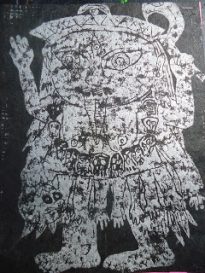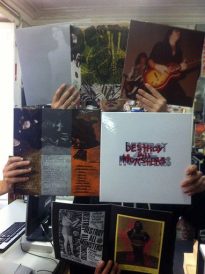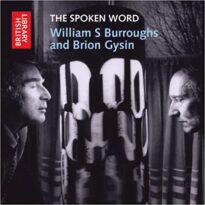
Robert Frank: Complete Film Work Vol 1: Pull My Daisy, The Sin of Jesus, Me and My Brother (3x DVD boxed set)
Robert Frank’s significant contribution to photography in the mid-twentieth century is unquestionable. His book, The Americans, is arguably the most important American photography publication of the post-World War II period, and his photography has spawned numerous disciples, as well as a rich critical literature. However, at the very moment Frank achieved the status of a “star” at the end of the 1950s, he abandoned traditional still photography to become a filmmaker. He eventually returned to photography in the 1970s, but Frank, as a filmmaker, has remained a well-kept secret for almost four decades. Robert Frank The Complete Film Works fills a long overdue gap by presenting every one of Frank’s more than 25 films and videos, some of them classics of the New American Cinema of the 1950s and 60s.
Robert Frank The Complete Film Works Volume 1: Pull My Daisy is a 1959 short film that typifies the Beat Generation. Directed by Robert Frank and Alfred Leslie, Daisy was adapted by Jack Kerouac from the third act of a stage play he never finished entitled Beat Generation. Kerouac also provided improvised narration. It starred Allen Ginsberg, Gregory Corso, Larry Rivers, Peter Orlovsky, David Amram, Richard Bellamy, Alice Neel, Sally Gross and Pablo, Frank’s then-infant son. Based on an incident in the life of Neal Cassady and his wife Carolyn, Daisy tells the story of a railway brakeman whose painter wife invites a respectable bishop over for dinner. However, the brakeman’s bohemian friends crash the party, with comic results. Pull My Daisy was praised for years as an improvisational masterpiece, until Leslie revealed in 1968 that the film was actually carefully planned, rehearsed, and directed by him and Frank
The Sin of Jesus was based on the story of Isaac Babel, a woman on a chicken farm who spends her days working at an egg-sorting machine. “I’m the only woman here.” She is pregnant, her husband spends his days lying in bed, and his friends encourage him to go out on the town with them. The woman talks to herself as she works, lost in the monotony of human existence. She counts the passing days in the same way she counts eggs. Even extraordinary events, such as the appearance of Jesus Christ in the barn, go under the stream of this melancholy solipsism.
Me and My Brother seems to be a rather artless-film-within-a-film being shown at a rundown movie theater. The story contains bizarre twists and turns: skillfully weaving together opposites, playing counterfeits against the authentic, pornography against poetry, acting against being, Beat cynicism against hippie romanticism, monochrome against colored. This was Frank’s first feature-length film work and it celebrates the return of the poetic essay as assemblage, the affirmation of the underground as a wild cinematic analysis in the form of a collage. There is a method to this film’s madness: It is so rich in text, quotes, music, and associations that keeping up with it through the underbrush of psyche, film, and urbanity is barely possible.
$ 175.00
In stock



